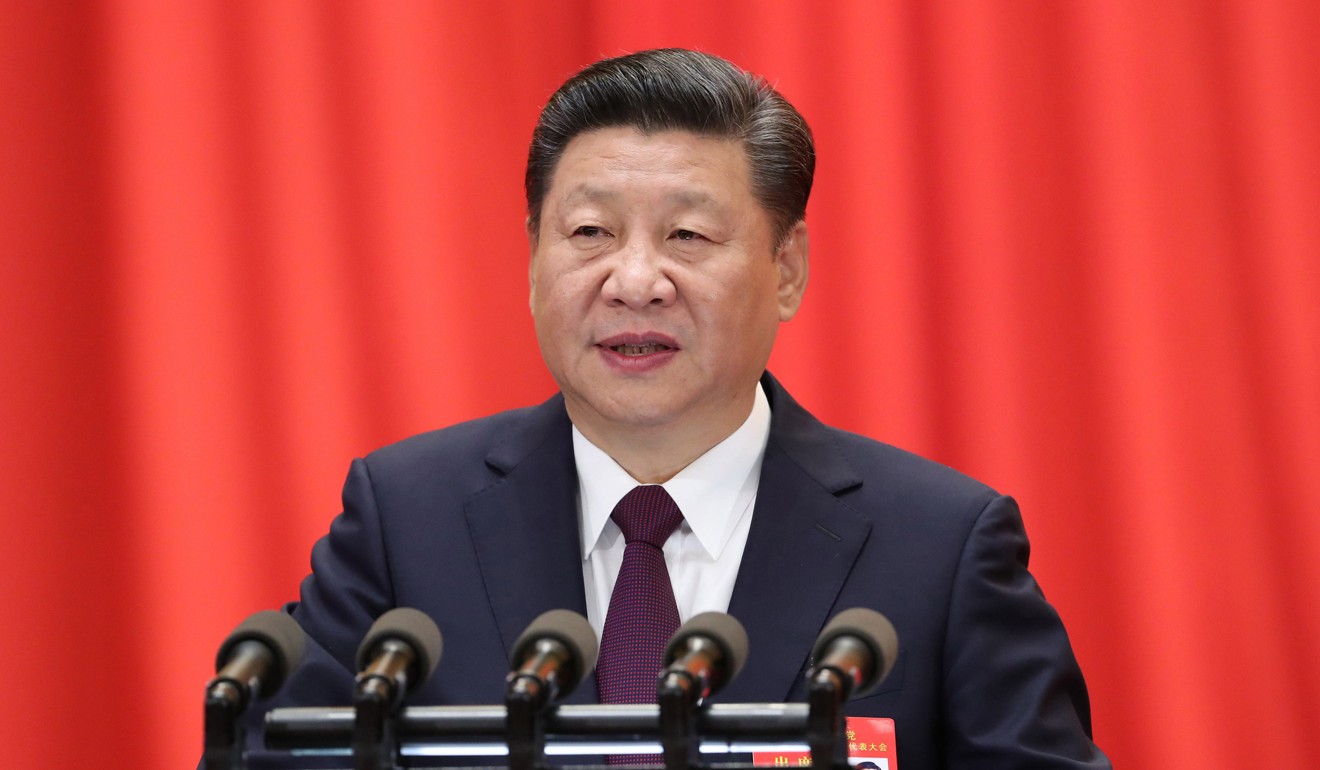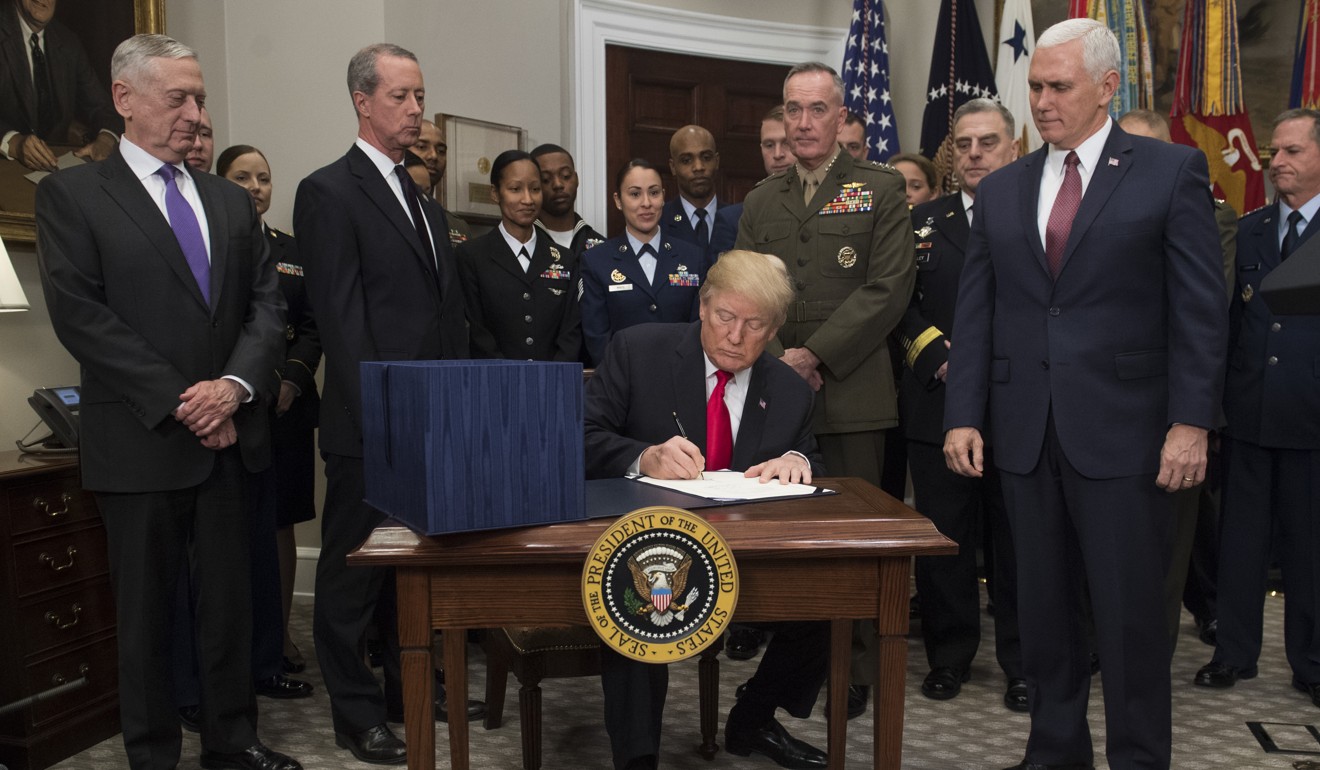Chinese Communist Party is stepping up efforts to stifle dissent abroad, US officials are told
Report points to the ‘co-opting of ethnic Chinese living outside China’ and targeting by intelligence services
PUBLISHED : Saturday, 25 August, 2018
China’s ruling Communist Party is pursuing an aggressive, covert infiltration of US educational and social institutions to quell dissenting voices and strengthen its soft power overseas, according to a report written for an influential US congressional body.
The Chinese Communist Party (CCP) is seeking “to co-opt ethnic Chinese individuals and communities living outside China”, said the report, published on Friday by the US-China Economic and Security Review Commission.
Chinese analysts said it indicated that Beijing and Washington were clashing on a new front – over ideology – as well as on trade and security.
US urged to save systems from ‘growing threat of Chinese cyber theft’
Methods to co-opt ethnic Chinese include threatening to imprison family members of Uygur people living in the US unless they agree to spy for the party, the report said.
At the same time, “a number of other key affiliated organisations guided by China’s broader United Front strategy conduct influence operations targeting foreign actors and states”, said the paper, referring to the United Front Work Department, a government body charged with strengthening adherence to the ruling party both within and outside China.
The research paper, titled “China’s Overseas United Front Work: Background and Implications for the United States”, is intended to inform further action by the commission, which reports to Congress with recommendations on legislative action related to China.
The commission’s report highlights the scrutiny to which the party subjects overseas Chinese, not only as carriers of soft power but also as potential resources for the monitoring of anti-party individuals and groups operating abroad.
Overseas Chinese ‘have role to play’ in building political trust abroad
The paper pointed to President Xi Jinping’s declaration at the party’s national congress last year that it would “maintain extensive contacts with overseas Chinese nationals, returned Chinese and their relatives and unite them so that they can join our endeavours to revitalise the Chinese nation”.
The publication comes amid rising international scrutiny of China’s reported detention of up to 1 million Uygurs in re-education camps in the Xinjiang Uygur autonomous region. Attention from the global community was renewed recently when a UN panel grilled Chinese representatives on the subject at a hearing on racial discrimination around the world.

As the party – in conjunction with Chinese state media – scrambles to discredit such concerns, scores of Uygurs living in the US are being targeted by Chinese intelligence services, according to the report.
Intelligence services are “threatening to send their families still in Xinjiang to internment camps, or keep them there, if the former do not agree to spy for China”, said the report, which draws extensively from media reports and interviews with experts on China’s overseas presence.

Megha Rajagopalan – a journalist who has reported on human rights abuses in Xinjiang and who was forced to leave China after her visa renewal application was recently denied – told the commission that the harassment of Uygurs living outside China was consistent with the United Front’s objective to quash voices of dissent against the ruling party.
The commission’s report also draws attention to the soft-power role played by the Chinese Students & Scholars Association (CSSA), which has established campus organisations for Chinese students abroad.
A number of CSSAs have denied government affiliation, but not all: the group at the University of Tennessee, for example, lists the Chinese embassy in the US as one of its sources of funding.
Last year, after the University of California at San Diego invited the Dalai Lama to speak at its commencement ceremony, the CSSA at the university spoke out in protest and said it was coordinating with the Chinese consulate on the matter.
Germany halts Uygur deportations after asylum seeker vanishes in China
There are signs that the US government is growing wary of some of the party’s influence and surveillance tactics detailed in the report.
The US military budget for 2019, recently signed into law, includes a stipulation that no Pentagon funding can be granted to educational institutions that allow Confucius Institute study programmes.

Operating under the auspices of the party, Confucius Institutes offer language and cultural courses to non-Chinese students. Their detractors accuse them of offering a sterilised, party-approved picture of Chinese culture that proactively glosses over contentious subjects like Tibet.
Acknowledging that move by US lawmakers, the commission’s report said that improved transparency – regarding, for instance, US universities’ relationships with Confucius Institutes – and oversight “hold great promise for countering the most subversive and anti-democratic of the CCP’s influence operations”.
Confucius Institutes fall victim to US politics
The US-China Economic and Security Review Commission has also played a role in efforts to prevent the transfer of advanced technologies to China through acquisitions.
Earlier this year, the body recommended expanded authority for the Committee on Foreign Investment in the United States (CFIUS) to review – and, if necessary, halt – Chinese firms’ acquisition of US companies if technologies developed or produced by the company could be adapted for military purposes.
The recommendation helped advance the Foreign Investment Risk Review Modernisation Act (FIRRMA), which provides greater powers to CFIUS and is now US law.
Shi Yinhong, a professor of international relations with Renmin University in Beijing, said the US had opened a new front in its confrontation with China since last year, accusing it of using “sharp power” overseas.
“The US and China are clashing in three areas now – on strategy, trade and ideology,” Shi said. “Washington says Beijing is exporting its ideology and intervening in foreign countries’ domestic politics. Many of the accusations are groundless or exaggerated,” he said, adding that China may need to reflect on its government activities overseas.
But Shou Huisheng, an international relations researcher at Tsinghua University in Beijing, said wariness over China’s growing influence abroad was not new.
“Promoting soft power overseas through official means can of course result in a backlash – one example of that is the government-backed Confucius Institute,” he said. “It will take time for the West to accept China’s rising power, and it will also take time for China to adjust its tactics and methods when it comes to overseas propaganda.”
No comments:
Post a Comment
Comments always welcome!